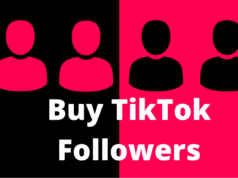
Effective marketing is as important to the success of a small startup as offering high quality products and services. Some companies with mediocre products and services and superior marketing strategies and procedures end up being wildly successful. By making a good marketing plan and regularly improving and upgrading it, it’s possible for any startup to become very successful. Here are some marketing tips startups with small marketing budgets can use.

1. Establish your brand identity
Before beginning to reach out to consumers, you must have a clear understanding of what your company has to offer and how it can benefit consumers. This will help you identify your company’s strengths, establish clear, attainable, goals, recognize your target market and begin to position your company to make the most of its assets. Focus on developing your unique business concept, being authentic, differentiating your company from the competition and consistently offering the best product or service your company possibly can. Then promote your company’s name and products in the marketplace with confidence. Your Marketing message should tell consumers why it’s in their best interest to do business with your company.
2. List and define your important goals and metrics
Define what success means and looks like for your company. Be clear on the steps it will take to attain it. Understand the importance of reaching out to a constant stream of new consumers each day, consistently generating and following up on leads and taking steps that drives traffic to your website. The article “Top Key Digital Marketing Metrics Small Businesses Need To Measure” from Digital Logic says that if you do your online marketing right, you can get five dollars for every dollar you put in. That’s a process that leads to success. Plan your work and work your plan to get the outcomes you want. Inspire positive publicity by your company’s meaningful actions and quality products, gather and analyze as much data as you can, to establish your baselines and outline the steps necessary to reach your goals.
 3. Determine your marketing budget and targets
3. Determine your marketing budget and targets
Determine how much money you have for your marketing activities and what you need to do with it. You should also establish a time frame within which you want to reach your goals. Take some time to create your marketing plan. Identify the most cost-effective marketing methods that will enable you to attain your goals in a timely manner and make them part of your marketing campaign. Doing a series of marketing campaigns that utilize the internet will enable you to get your message in front of a large audience without having to spend lots of money. If your campaign is innovative and creative enough, it can go viral and attract lots of added attention to your brand.
 4. Choose a target market
4. Choose a target market
Although creating a marketing campaign that appeals to the masses has the potential to attract millions of customers, a very broad and wide reaching marketing campaign can be expensive and time consuming. Small startups with limited budgets can often begin to gain traction in the marketplace by targeting a niche market. Aiming your marketing efforts towards a niche market segment and a specific demographic enables you to use your limited budget more effectively. As your sales and income increase, you can expand your target audience gradually and reach a broader range of consumers.
5. Use social media to connect with your target audience
To succeed, your brand must consistently connect and create an ongoing dialogue with potential customers. Social media is the most effective and cost-efficient way for a small startup to do so. Establish and regularly update your social media presence on the platforms your target audience uses most, be it Facebook, LinkedIn, Instagram, Twitter or Pinterest. Put up an interesting post, offer deals and specials and create thought-provoking threads that generate attention for your brand. Post content that will intrigue, interest and benefit your target audience and move them to respond.
6. Post quality content that encourages audience engagement
Presenting good, attention-grabbing, quality, content that’s relevant to your target market is a great way to stimulate audience interaction and engagement. Establish yourself as a trusted source of valuable, useful, information that can improve people’s quality of life by providing a unique insight or thought-provoking, helpful, tidbits. Quickly respond to comments and questions about your content. This opens the lines of communication, helps improve engagement and builds relationships between your brand and your audience that can be monetized later.
7. Identify your partners
Identify and interact with key industry experts. Follow on social media, share information and interact with established, ‘hot’, brand influencers. Comment on and share good content they post. Establish yourself as someone who continually posts useful content. This will help your brand to develop a positive reputation, attract the interest of a growing number of people and help you build solid relationships. If your posts are meaningful and helpful, gradually known brand influencers will begin to acknowledge and share them. This will provide valuable exposure and attention for your brand.
8. Pay attention
To make your marketing campaign more effective, you must pay attention to what’s going on in the marketplace and consumers’ reactions to and comments about it. Monitor your social media channels closely and note the feedback your posts generate and what’s said about your brand. Use Google Alerts to monitor your brand mentions. Address negative feedback immediately and tactfully and build on positive mentions and reviews. Learn from your marketing mistakes, quickly make the necessary changes and listen and learn so you can establish your company properly right from the start.
 Successfully marketing a company is an ongoing endeavor. You must continually evaluate your actions, identify what works and consistently refine your methods. Regularly assess each step of your marketing campaign, from your target market to your social media messaging, to see where you can improve your actions and outcomes. Persistence, quality products and services and a good marketing plan are important keys to success. They can help to increase brand awareness, attract more customers and improve your return on investment.
Successfully marketing a company is an ongoing endeavor. You must continually evaluate your actions, identify what works and consistently refine your methods. Regularly assess each step of your marketing campaign, from your target market to your social media messaging, to see where you can improve your actions and outcomes. Persistence, quality products and services and a good marketing plan are important keys to success. They can help to increase brand awareness, attract more customers and improve your return on investment.








